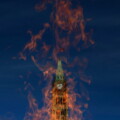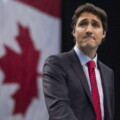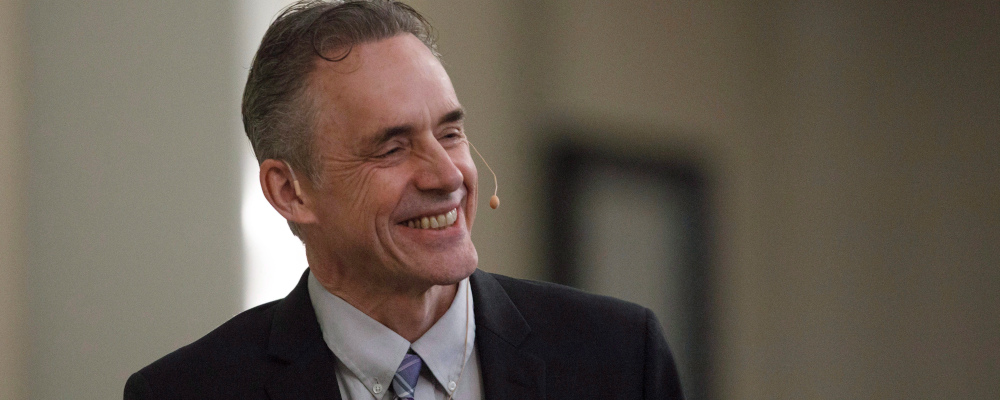How famous is Jordan Peterson? Well, tonight Canada’s most influential living intellectual will give a lecture on his latest book not to a smattering of readers in a local library or university hall but to an enormous crowd at Ottawa’s Canadian Tire Centre. The stop is part of Peterson’s Beyond Order: 12 More Rules for Life North American speaking tour, which is selling out arena venues across the continent. The event will proceed despite numerous community groups and activists campaigning for the event’s cancellation. Indeed, the controversy has evidently spurred even more interest.
Peterson has been found squarely in the middle of our polarized political debate since he emerged onto the public scene in the mid-2010s. The backlash to his message and public persona has been furious, and now, institutional, with the College of Psychologists of Ontario attempting to rein him in.
On May 16th, 2022, Peterson was up to his usual Twitter hijinks. He posted a salty riposte to Sports Illustrated using the plus-sized model Yumi Nu for its cover: “Sorry. Not beautiful. And no amount of authoritarian tolerance is going to change that.”
I groaned. Clearly, the model, with her smouldering features, waist-to-hip dimensions, and luscious dark locks, was beautiful. It was gross in any event to witness a 60-year-old man publicly negging a twenty-something in a bikini—kind of like your dad telling you he doesn’t find your friend hot.
But just like a hammer for which everything looks like a nail, for Peterson, who is truly obsessed with the atrocities of the Soviet era, everything in modern culture can be read as an attempt at indoctrinating ideology. This ranges from the plausible (COVID mandates and the Trudeau government’s heavy-handed response to the Freedom Convoy) to the preposterous (featuring a beautiful woman whose body represents the average American’s, rather than a beautiful woman with a figure unachievable by 99.999 percent of the population, on a magazine cover).
The registrar of the College of Psychologists concluded that the statements posed a “moderate risk” to the public and announced that they would require him to submit to a mandatory coaching program, even prior to the disciplinary hearing.

The creep of progressive politics into regulatory bodies is now a Canada-wide phenomenon. In 2016, the Law Society of Ontario adopted a poorly drafted requirement that lawyers and paralegals adopt a self-authored Statement of Principles outlining their personal commitment to promoting diversity and equality in their practice. This immediately raised both philosophical and practical questions. Philosophically, it would appear to be an instance of compelled speech, since it required active assertion of a prescribed message on the part of licensees. Practically, it raised questions of how, exactly, a lawyer in private practice could “promote equality and diversity” in her daily activities. (The Law Society promptly elected a slate of benchers at their next election who ran on the sole platform of repealing the Statement of Principles.)
And during the pandemic, the College of Physicians and Surgeons of Ontario demonstrated a myopic and iron-fisted approach to regulating the speech of its members. In April 2021, the CPSO adopted a policy that strictly forbade doctors from criticizing lockdowns or school closures (despite the fact that well-respected epidemiologists and physicians across the world had openly expressed skepticism) and threatened its members with fines and disciplinary action for failure to adhere with these rules.
More recently in B.C., the medical profession is reeling over the hastily-passed Health Professions and Occupations Act, which allows the government to appoint college board members who are granted broad discretion to regulate all areas of one’s existence as well as to publicize all complaints against medical professionals.
This brings us to the Peterson matter.
Peterson is challenging the constitutionality of several of the College’s codes of ethics, standards of professional behaviour, and by-laws that permitted it to order him to submit to mandatory coaching and training. (There has been some confusion about why the Charter applies to a regulatory body. Since the College is empowered by statute as a self-governing body, its actions must be Charter-compliant). He claims that the relevant provisions of the College’s Code of Ethics are contrary to the Charter’s s. 2(b) guarantee of freedom of expression. He also asks for an order restraining the College from regulating its members’ otherwise lawful speech which is unrelated to the practice of psychotherapy.
The College is limited by its statutory mandate to matters which relate to the practice of psychology. It’s difficult to see how, even to the least informed casual observer, a non-practicing psychologist’s tweets about politics and culture could be seen to threaten the public perception of the discipline.
Moreover, this isn’t Peterson’s first rodeo with the College. In 2020, a decision was rendered in response to a complaint about Peterson tweeting articles very much of the same ilk as those impugned in the current complaint, like posting an article titled “The Transgender Movement Targets Autistic Children” and tweeting that Justin Trudeau is a “virtue-signalling ideological puppet.”
In the result, the College concluded that the tweets posed a “low risk” to the public and that “The Charter of Rights and Freedoms guarantees rigorous debate, and therefore protects Dr. Peterson’s public pronouncements so long as he does not violate provincial or federal laws.” The decision concluded with a milquetoast suggestion that Peterson “may wish to offer [his] comments in a respectful tone.” It appears highly arbitrary, and dependent upon the whims of the individual sitting registrar, that this time they have arrived at the opposite conclusion on a very similar body of evidence.
It’s hard not to discern more than a trace of tall poppy syndrome here. Peterson is Canada’s most famous public intellectual since Marshall McLuhan, with the most popular Canadian-produced podcast and YouTube channel in the country by a country mile, bestselling books, and an ability to sell out huge venues across the country for public debates. The College’s investigation and the clarion calls to cancel his public speaking events have served as a signal boost for him, and whatever the outcome of this matter, it’s safe to say he’ll be fine—it is hard to argue the naysayers have been able to diminish the reach of his message.
It’s not Peterson, then, but the rest of the profession who will observe this affair and soft-pedal their expression accordingly that we ought to be concerned about. Where professional regulators can step far out of their wheelhouses and impose penalties for lawful speech, our public discourse is necessarily truncated.
Recommended for You

‘That would be a major constitutional crisis’: Parliamentary expert Philippe Lagassé on if the Liberals could postpone the election until 2026

J.J. McCullough: What Trudeau never understood about Canadian pride—and Poilievre does

Howard Anglin: Imagine? No thanks, John

Ginny Roth: ‘Based’ Pierre Poilievre is here to stay




